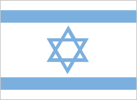Compare
Falkland Islands
to
Israelto
IsraelIsrael has an unemployment rate of 5.90% while Falkland Islands has 4.10%
This entry contains the percent of the labor force that is without jobs.
Source:
CIA World Factbook
The GDP per capita in Israel is $36,200 while in Falkland Islands it is $55,400
This entry shows GDP on a purchasing power parity basis divided by population as of 1 July for the same year. A nation's GDP at purchasing power parity (PPP) exchange rates is the sum value of all goods and services produced in the country valued at prices prevailing in the United States. This is the measure most economists prefer when looking at per-capita welfare and when comparing living conditions or use of resources across countries. The measure is difficult to compute, as a US dollar value has to be assigned to all goods and services in the country regardless of whether these goods and services have a direct equivalent in the United States (for example, the value of an ox-cart or non-US military equipment); as a result, PPP estimates for some countries are based on a small and sometimes different set of goods and services. In addition, many countries do not formally participate in the World Bank's PPP project that calculates these measures, so the resulting GDP estimates for these countries may lack precision. For many developing countries, PPP-based GDP measures are multiples of the official exchange rate (OER) measure. The differences between the OER- and PPP-denominated GDP values for most of the wealthy industrialized countries are generally much smaller.
Source:
CIA World Factbook
Falkland Islands consumes 4.4352 gallons of oil per day per capita while Israel consumes 1.2810
This entry is the total oil consumed in gallons per day (gal/day) divided by the population. The discrepancy between the amount of oil produced and/or imported and the amount consumed and/or exported is due to the omission of stock changes, refinery gains, and other complicating factors.
Source:
CIA World Factbook
The per capita consumption of electricity in Falkland Islands is 6,221kWh while in Israel it is 6,229kWh
This entry consists of total electricity generated annually plus imports and minus exports, expressed in kilowatt-hours. The discrepancy between the amount of electricity generated and/or imported and the amount consumed and/or exported is accounted for as loss in transmission and distribution.
Source:
CIA World Factbook
 With its 7,821,850 people, Israel is the
98th largest country in the world by
population. It is the 152nd largest country in the
world by area with 20,770 square kilometers.
With its 7,821,850 people, Israel is the
98th largest country in the world by
population. It is the 152nd largest country in the
world by area with 20,770 square kilometers.
Following World War II, the British withdrew from their mandate of Palestine, and the UN proposed partitioning the area into Arab and Jewish states, an arrangement rejected by the Arabs. Nonetheless, an Israeli state was declared in 1948 and the Israelis subsequently defeated the Arabs in a series of wars without ending the deep tensions between the two sides. (The territories Israel occupied since the 1967 war are not included in the Israel country profile, unless otherwise noted.) On 25 April 1982, Israel withdrew from the Sinai pursuant to the 1979 Israel-Egypt Peace Treaty. In keeping with the framework established at the Madrid Conference in October 1991, bilateral negotiations were conducted between Israel and Palestinian representatives and Syria to achieve a permanent settlement. Israel and Palestinian officials signed on 13 September 1993 a Declaration of Principles (also known as the "Oslo Accords"), enshrining the idea of a two-state solution to their conflict and guiding an interim period of Palestinian self-rule. Outstanding territorial and other disputes with Jordan were resolved in the 26 October 1994 Israel-Jordan Treaty of Peace. Progress toward a permanent status agreement with the Palestinians was undermined by Israeli-Palestinian violence between 2001 and February 2005. Israel in 2005 unilaterally disengaged from the Gaza Strip, evacuating settlers and its military while retaining control over most points of entry into the Gaza Strip. The election of HAMAS to head the Palestinian Legislative Council in 2006 froze relations between Israel and the Palestinian Authority (PA). In 2006 Israel engaged in a 34-day conflict with Hizballah in Lebanon in June-August 2006 and a 23-day conflict with HAMAS in the Gaza Strip during December 2008 and January 2009. Direct talks with the Palestinians launched in September 2010 collapsed following the expiration of Israel's 10-month partial settlement construction moratorium in the West Bank. In November 2012, Israel engaged in a seven-day conflict with HAMAS in the Gaza Strip. Prime Minister Binyamin NETANYAHU formed a coalition government in March 2013 following general elections in January 2013. Direct talks with the Palestinians resumed in July 2013 and but were suspended in late April 2014.
Check out the recommended reading list below for great sources of information on Israel